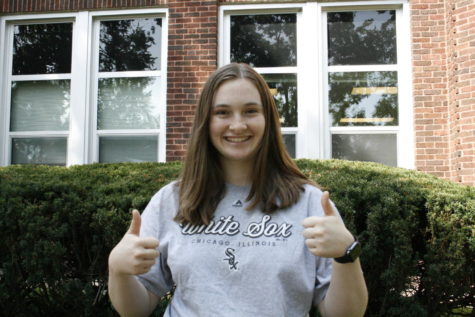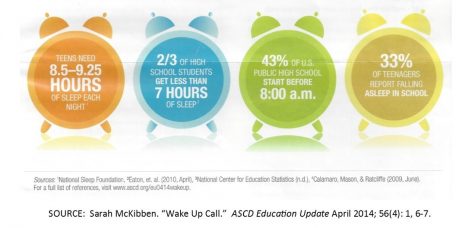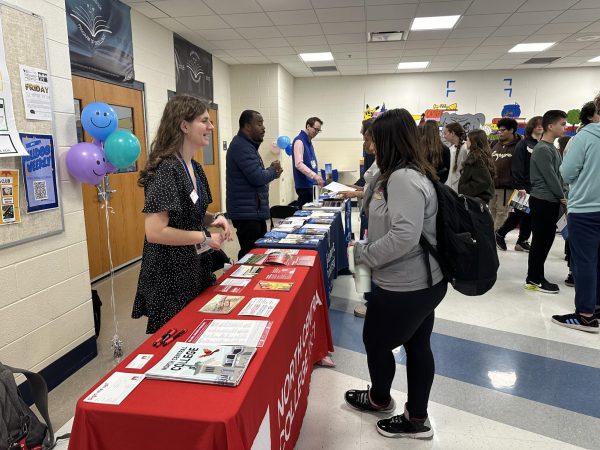I can’t get enough sleep… here’s why
This is the structure of melatonin, the chemical released in order to make someone sleep.
Like many high school students, one of my favorite activities is sleeping. Every morning when I wake up, I realize that my favorite thing to do is sleep, just like every night when I go to bed. It’s a vicious cycle that always seems to get the best of me. Of course, my love of sleep is exploited by my constant lack of sleep. Functioning on a lack of sleep is just like any other skill: practice makes perfect, and I’m very experienced.
One major factor in my lack of sleep is my involvement in RB’s many clubs, sports, and activities. I will not list any, as I realize that no one cares, but there is a bigger message. Any student who is remotely involved understands that there is simply not enough time in the day to accomplish everything. In my busiest times of the year, I often find myself spending less time sleeping each night than the minimum sleep recommendation for someone my age.
I cannot express in a number known to man how many times my darling mother, as her bedroom is adjacent to where I do my homework, has told me to go to bed because I need to get more sleep. As much as I love my mother, the proposal for me getting more sleep is simply unrealistic. Homework, laundry, and eating end up with so many other basic human functions that I so often don’t have enough time to do. Although this may seem like an unimportant detail about a boring teenager’s life, I believe there is something more to say.
When presented with time crunches like these, I have to think through the manner in which I allocate my time. Should I be doing every ounce of homework, optional and otherwise, or should I be trying to get more sleep? Like so many others, sleep often loses this battle.
In my logic, there is a finite amount of time that a specific homework assignment can be completed, but there will always be a time in the future to sleep. I figure that I can just do the homework now and sleep this weekend. When I get a B on the test I decided to study less for in an effort to get more sleep, I won’t be thinking about how much better I feel because I got an extra thirty minutes of sleep, I will be thinking about how much better I could have done if I just studied for that half-hour more.
Furthermore, where should one draw the line? Good grades and many activities lead to a good college, which leads to a good job, which leads to stability, which leads to a happy life, which leads to what? Why should I be worried about the future now? Humans so often are blinded by this highly anticipated future, blocking what is happening in the present. I understand that prior planning prevents poor performance, but why should I be working so hard when it is affecting my health, and I won’t see the benefits, if ever, for another decade? I also understand that a good college will get me a good job so that I can make seventy-nine cents to a man’s dollar, but at what point am I supposed to stop and throw in the towel?
This daily internal dilemma leads to a bigger question regarding something bigger than me: is the U.S.’s education putting students’ health (both mental and physical, don’t come for me, mononucleosis) first? I believe that the answer is no, and science has my back.
Researchers from the Salk Institute for Biological Studies and the University of Washington published a journal in December of 2018 detailing a study that, using incredibly intricate trials and such, has provided concrete evidence about the positive impact of later start times in high schools. These researchers studied students from Seattle Public Schools, a system that implemented later start times at the beginning of the 2016-2017 school year. Positive benefits included increased academic performance, reduced sleepiness, and an increase in sleep by over half an hour every night.
Just think about the possibilities this later start time could hold: more time for sleeping without diminished homework time, a reduction in sluggish behavior (I’m especially looking forward to this one), and heightened academic scores, without really doing anything. The education system of the United States is blatantly disregarding science, as there are copious studies proving this exact same thing: high schools have to start later.
Making start times later is just one of the proposed solutions for this epidemic of teenage tiredness. Until someone a little higher up the food chain decides to change something, it doesn’t look like I’ll be getting more sleep.

Claire Harrison is a senior at Riverside Brookfield High School. She was the sitting president of Liechtenstein and is currently on leave from the World...











